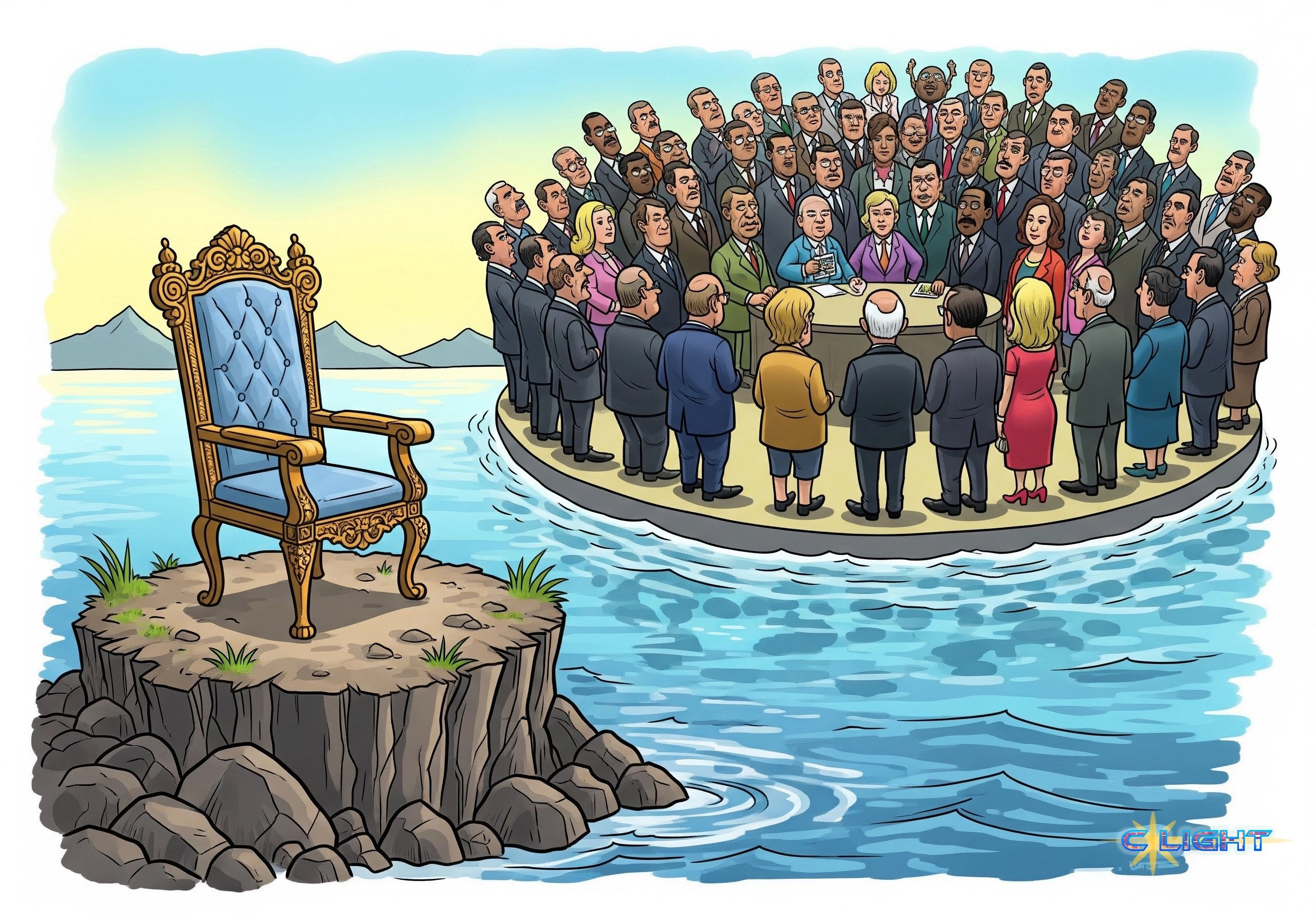It was a performance for an audience of one. Standing among the leaders of the world’s most powerful democracies at the G7 summit in Canada, Felonious Punk, the American President, chose his first public moments not to reaffirm alliances or address global crises, but to offer an unprompted and historically bankrupt defense of Vladimir Putin. In doing so, he didn’t just alienate the allies beside him; he stranded himself on a political island so remote that even his own Republican party is refusing to send a rescue boat. His actions have created a crisis of leadership at home and abroad, and have resurrected the most damaging and persistent question of his political career: What is the nature of this strange, unyielding allegiance to Russia?
The scene in Canada was a masterclass in diplomatic sabotage. Punk lamented that the G7 “used to be the G8,” and placed the blame for Russia’s 2014 expulsion squarely on “Barack Obama and a person named Trudeau.” This narrative conveniently omits the reason for the expulsion: Russia’s illegal invasion of Ukraine and annexation of Crimea. It was a stunning inversion of cause and effect, recasting the West’s punitive response to aggression as the original sin, and Russia as the wronged party. To the other leaders present, this was not just a historical inaccuracy; it was a betrayal. He was actively siding with the very aggressor their alliance was created to contain.
This act of political arson was not performed in a vacuum. As a damning New York Times analysis reveals, America’s allies were already in the process of building a world that works around an unreliable United States. Concerned by the Punk administration’s hostility and its contempt for the “rules-based international order,” nations like Canada, Britain, France, and Japan have been furiously forging new trade, defense, and diplomatic pacts with each other. The G7, in effect, was already a “G6-plus-one” meeting before it even began. Punk’s pro-Russia tirade was simply the final confirmation of their fears, accelerating their drive to create a global structure less dependent on the whims of a volatile America.
The fallout from this global isolation has now triggered a full-blown revolt within the Republican Party. While Punk was defending Putin abroad, his own party leadership was scrambling to control the damage at home. Senate Majority Leader John Thune announced that the Senate would move to pass sanctions against Russia “over his head.” Senator Mitch McConnell, in a terse and extraordinary public exchange, was forced to ask the administration’s own Secretary of Defense which side the White House actually wanted to win in Ukraine.
This is the island on which Felonious Punk now finds himself. It is a place where his foreign policy is so toxic and so detrimental to American interests that the leaders of his own party are forced to publicly question his loyalty and attempt to seize the reins of international relations themselves. They see what the rest of the world sees: an American president actively weakening the alliances that form the bedrock of U.S. power.
The question, of course, is why. One angle suggests a narcissistic worldview, a need to be the singular “dealmaker” who can solve any crisis. From this perspective, his lament over Russia’s exclusion is less about defending Putin and more about his own ego—a frustration that he wasn’t there to personally broker a grand bargain. He has cheered on the escalating Israel-Iran conflict one day and claimed to be the sole architect of its future peace the next, revealing a volatile need to be at the center of every transaction.

But for many in Washington, including an increasing number of Republicans, that explanation is no longer sufficient to justify the sheer scale of the damage. The questions become more severe, more uncomfortable. We now know that his G7 performance came just two days after a private phone call with Vladimir Putin. We also know that his administration has been quietly dismantling the government’s own expertise, purging an interagency working group tasked with creating strategies to pressure Russia.
This sequence of events—the gutting of internal expertise, a private call with Putin, followed by a public defense of the Kremlin’s narrative—inevitably resurrects the controversy that has haunted his entire political life. It forces us to ask, as much as one hesitates to, about the possibility of a quid pro quo. What could have been said on that call to prompt such a specific and self-destructive performance on the world stage? Why is the President of the United States more committed to defending Russia’s 2014 actions than the senior leaders of his own party are?
This issue comes up time after time because the President’s own actions refuse to let it die. There has to be some substance there somewhere. When a leader so completely isolates himself from his allies and his own political party in favor of a narrative that so perfectly aligns with that of an adversary, it is no longer a “strange relationship.” It is a crisis of allegiance that demands answers. By choosing this path, Felonious Punk has stranded himself. The question for the country is whether he will take the rest of us with him.
Discover more from Clight Morning Analysis
Subscribe to get the latest posts sent to your email.










